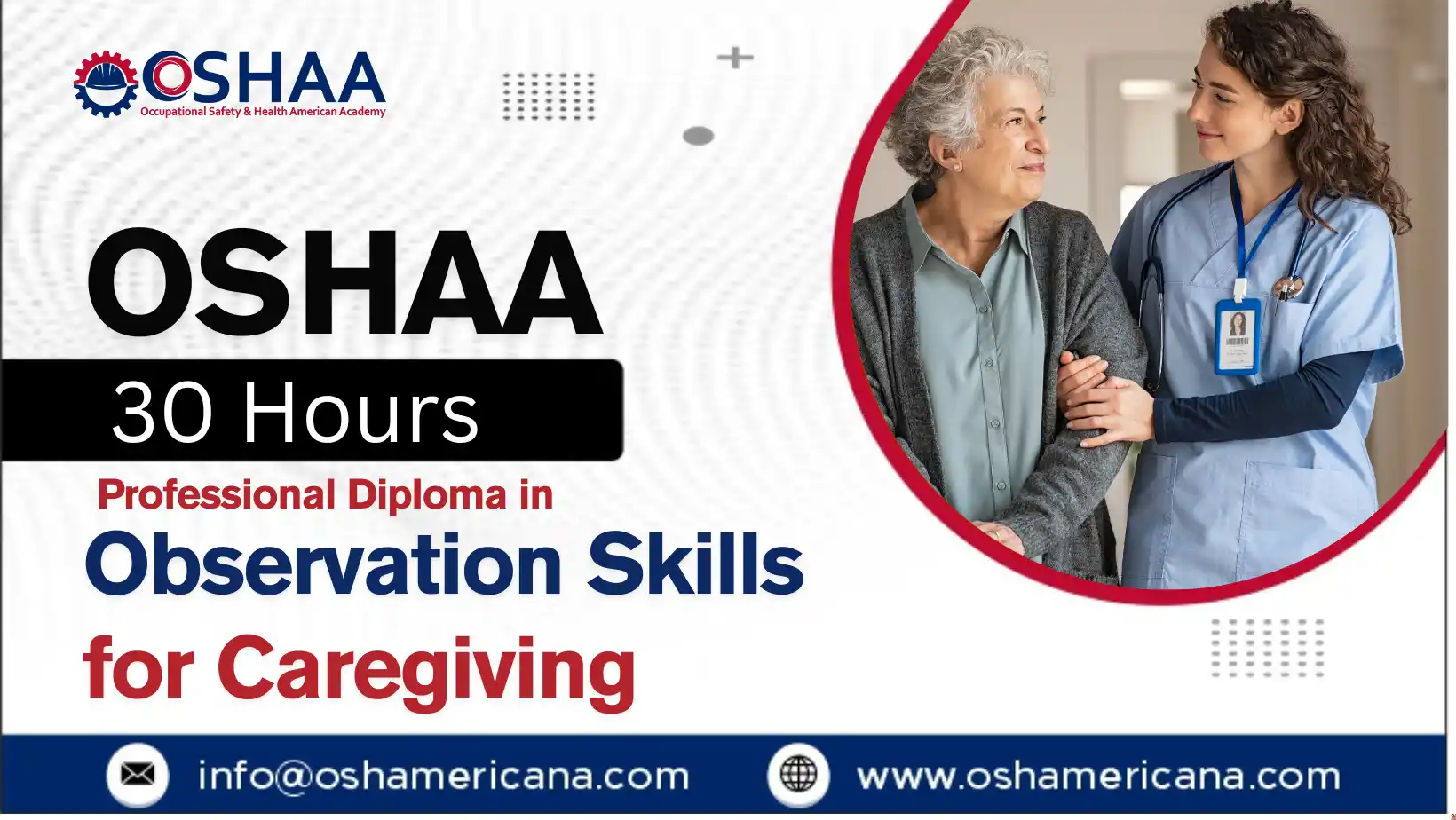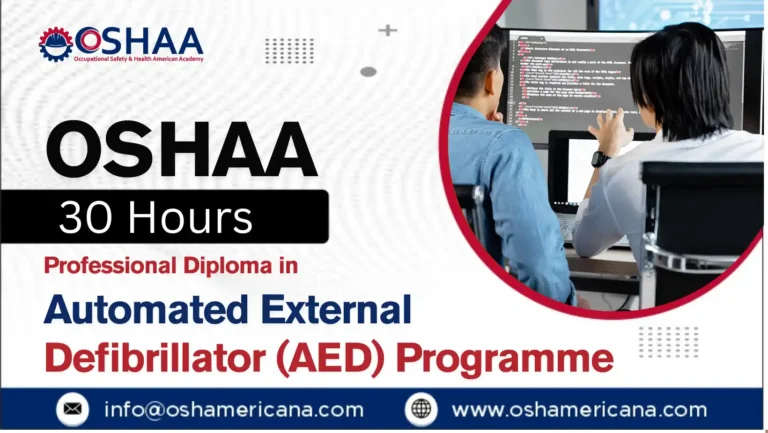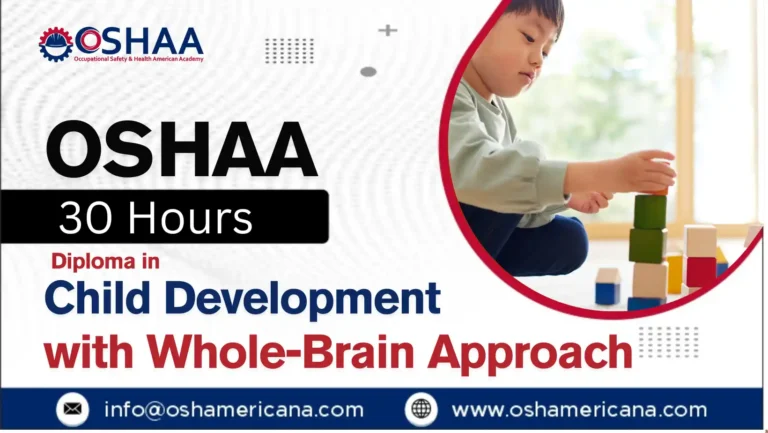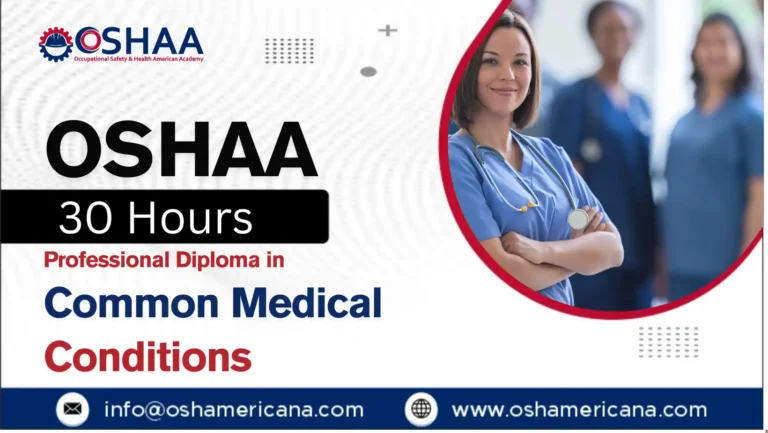In the ever-evolving landscape of health and social care, the ability to observe and assess changes in a patient’s condition is essential. The OSHAA 30-Hours Professional Diploma in Observation Skills for Caregiving is specifically designed to equip participants with the practical skills and theoretical knowledge necessary to enhance the quality of care delivered across a range of settings.
This comprehensive diploma programme focuses on developing acute observational skills, enabling participants to identify early signs of physical, emotional, and behavioural changes in individuals under their care. Whether working in residential care, domiciliary care, or within a hospital environment, precise and timely observation is a cornerstone of effective caregiving.
Throughout the course, participants engage with evidence-based learning modules that cover essential topics such as monitoring vital signs, recognising signs of distress, documenting behavioural patterns, and understanding non-verbal cues. Emphasis is placed on both the practical application of skills and the ethical considerations involved in observing and recording patient information.
The OSHAA 30-Hours Professional Diploma in Observation Skills for Caregiving is a valuable investment in professional development, enhancing participants’ ability to deliver safe, person-centred, and responsive care. As demand for high-quality caregiving continues to grow, this diploma positions participants at the forefront of care excellence.
OSHAA 30-Hours Professional Diploma in Observation Skills for Caregiving
Study Units
Learning Outcomes
Introduction to Observation in Caregiving (3 hours)
- Participants will understand the fundamental role of observation in effective caregiving.
- Participants will identify the key purposes and benefits of observational skills in various care settings.
- Participants will develop an awareness of the responsibilities associated with accurate observation in line with care standards.
Monitoring and Recording Vital Signs (4 hours)
- Participants will learn to accurately measure and interpret temperature, pulse, respiration, and blood pressure.
- Participants will understand the significance of deviations from normal ranges in vital signs.
- Participants will be able to document vital signs effectively, following professional and organisational protocols.
Recognising Physical and Emotional Changes (5 hours)
- Participants will identify early signs of physical deterioration and emotional distress in individuals.
- Participants will develop skills to distinguish between normal age-related changes and signs of concern.
- Participants will enhance their ability to act appropriately upon recognising changes in a care recipient’s condition.
Understanding Non-Verbal Communication (3 hours)
- Participants will explore the importance of body language, facial expressions, and gestures in caregiving.
- Participants will interpret non-verbal cues to better understand individuals who may have limited verbal communication.
- Participants will use non-verbal communication to build trust and rapport in care relationships.
Behavioural Observation and Mental Health Indicators (4 hours)
- Participants will understand common behavioural patterns associated with mental health conditions.
- Participants will learn techniques for observing and documenting behavioural changes.
- Participants will recognise the importance of timely intervention and appropriate referrals.
Documentation and Reporting Techniques (3 hours)
- Participants will develop competence in accurate and objective record-keeping.
- Participants will understand the legal and ethical importance of proper documentation.
- Participants will be able to report observational findings clearly to support effective care planning.
Safeguarding and Ethical Observation Practices (3 hours)
- Participants will gain knowledge of safeguarding principles in relation to observation.
- Participants will understand the boundaries of ethical observation and privacy considerations.
- Participants will learn how to report safeguarding concerns responsibly and sensitively.
Effective Communication with Multidisciplinary Teams (5 hours)
- Participants will understand the role of observation in supporting coordinated care.
- Participants will develop skills to communicate observations effectively with nurses, doctors, and allied health professionals.
- Participants will learn to participate in team discussions and contribute to care planning using observed evidence.
- Equips participants with the ability to observe and respond to early signs of physical, emotional, and behavioural changes in individuals.
- Enhances participants’ practical skills in monitoring and recording vital signs accurately, supporting better clinical decision-making.
- Strengthens participants’ ability to interpret non-verbal communication, improving engagement with individuals who have limited verbal ability.
- Builds participants’ confidence in identifying mental health indicators and understanding behavioural patterns relevant to care delivery.
- Provides participants with the knowledge to document observations clearly and ethically, aligning with professional care standards.
- Prepares participants to work effectively within multidisciplinary teams by improving communication and collaborative skills.
- Trains participants in safeguarding principles, ensuring they understand their role in protecting vulnerable individuals through responsible observation.
- Supports participants’ professional development with a recognised qualification that enhances their credibility in the care sector.
- Offers participants practical, scenario-based learning that reflects real-life caregiving situations, promoting readiness and confidence.
- Empowers participants to contribute to high-quality, person-centred care through improved observational competence and ethical practice.
The OSHAA 30-Hours Professional Diploma in Observation Skills for Caregiving is ideal for individuals working or aspiring to work in the health and social care sector. It is particularly suited to:
- Aspiring caregivers seeking to build foundational skills in professional observation and care delivery
- Current care workers, support workers, and healthcare assistants wishing to enhance their observational competencies
- Residential and domiciliary care staff responsible for monitoring the wellbeing of vulnerable individuals
- Staff working in hospitals, nursing homes, or community care environments who are involved in daily patient interaction
- Professionals looking to meet compliance standards and improve their ability to document and report care observations
- Individuals preparing for supervisory roles who need a stronger understanding of observation within team-based care
- Anyone interested in pursuing a recognised qualification that supports career progression in the caregiving and health support fields
This course is suitable for both new entrants and experienced practitioners who wish to formalise their skills and stay aligned with best practices in person-centred care.







